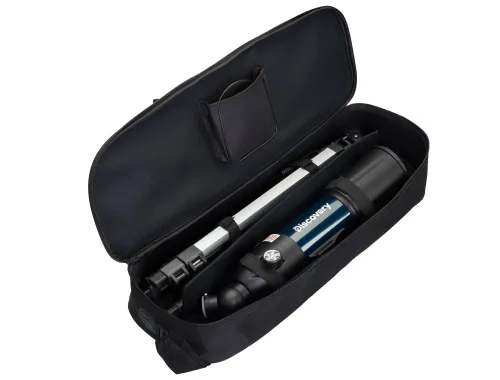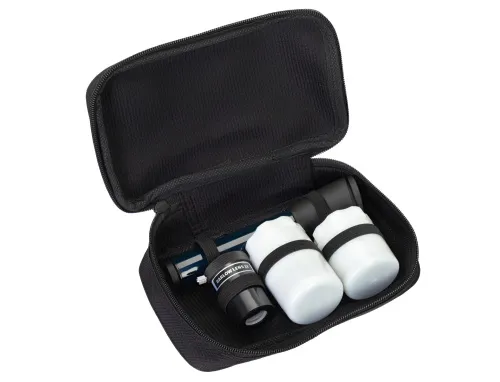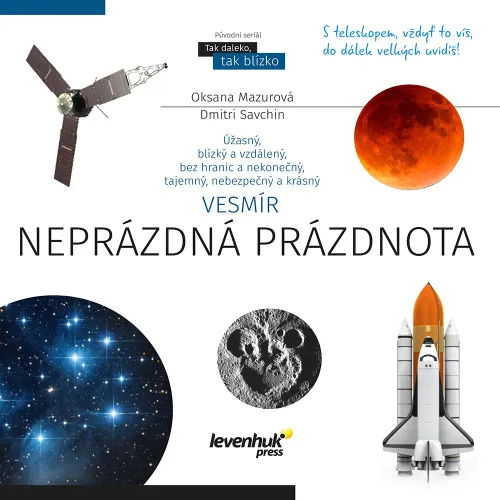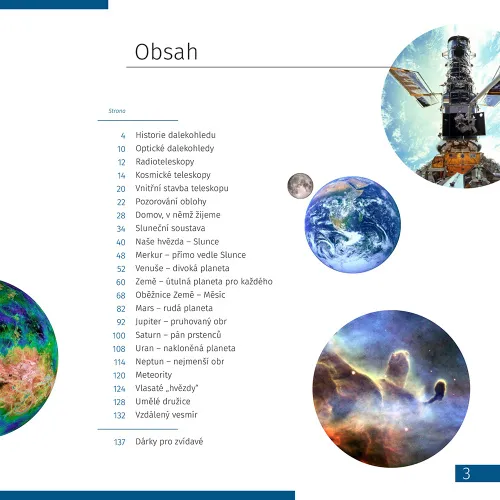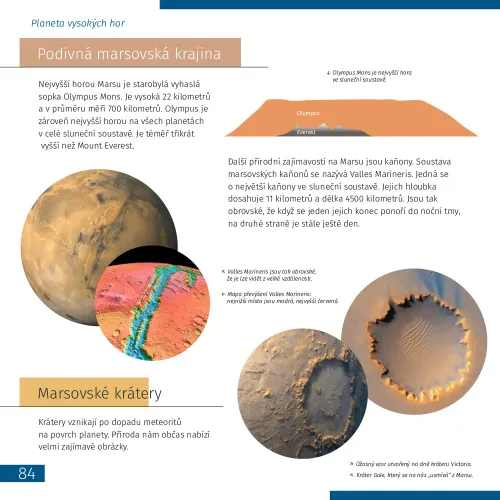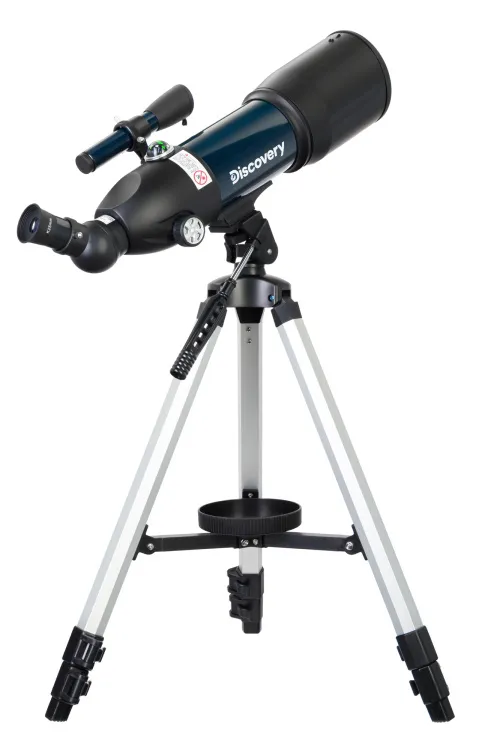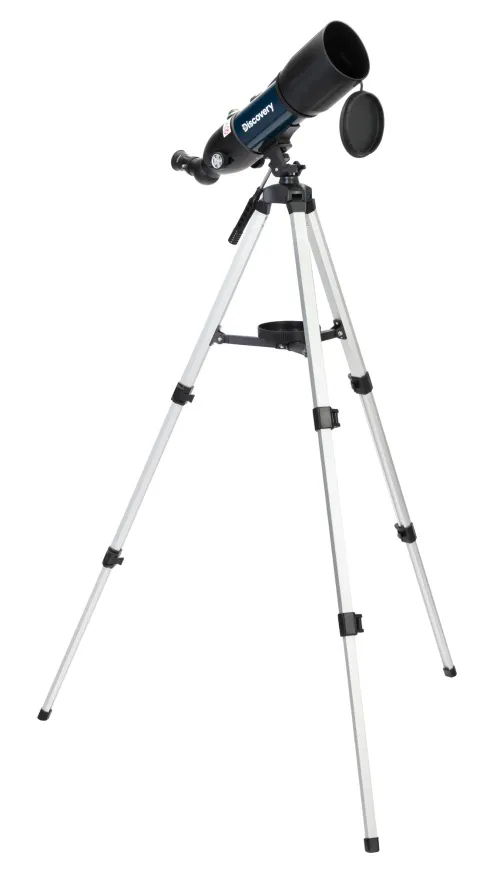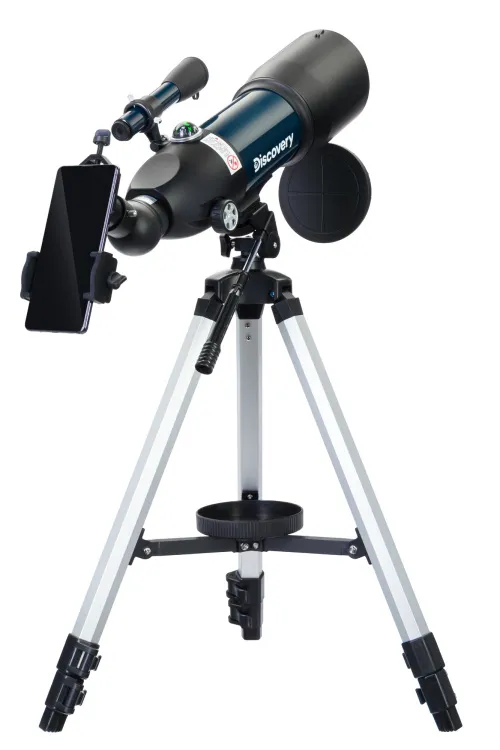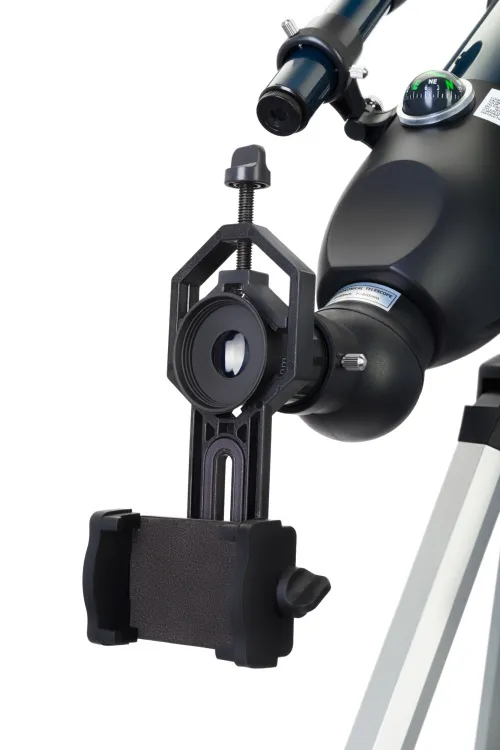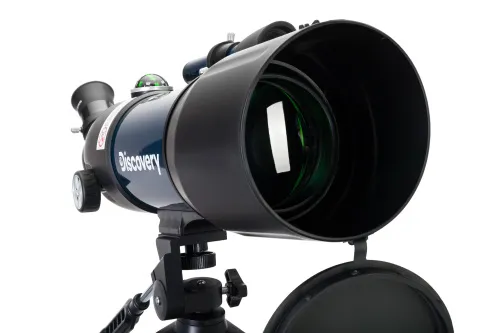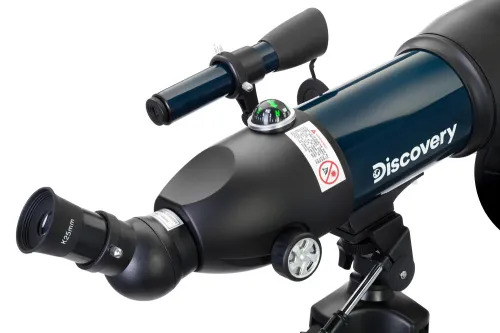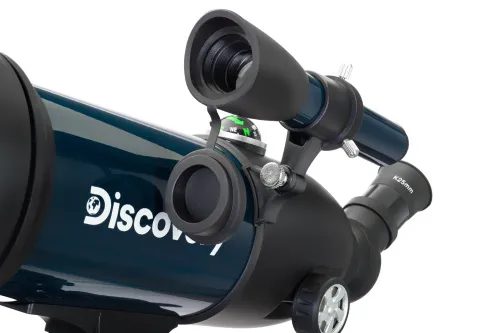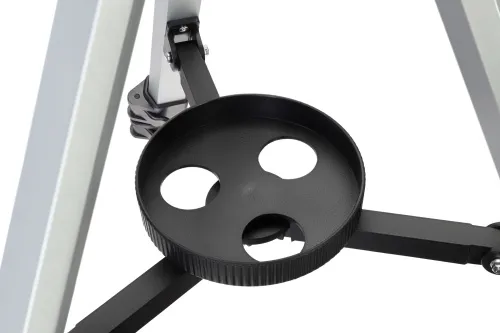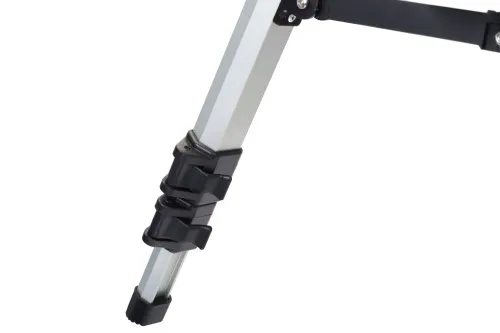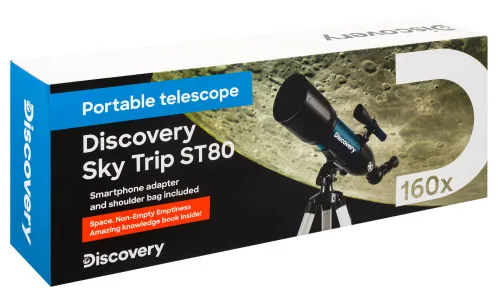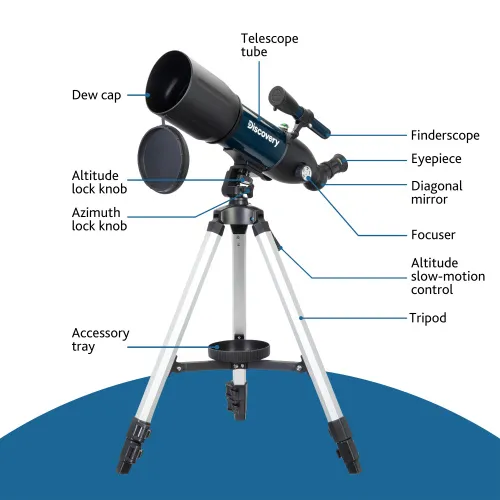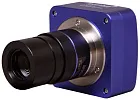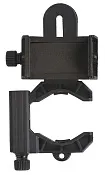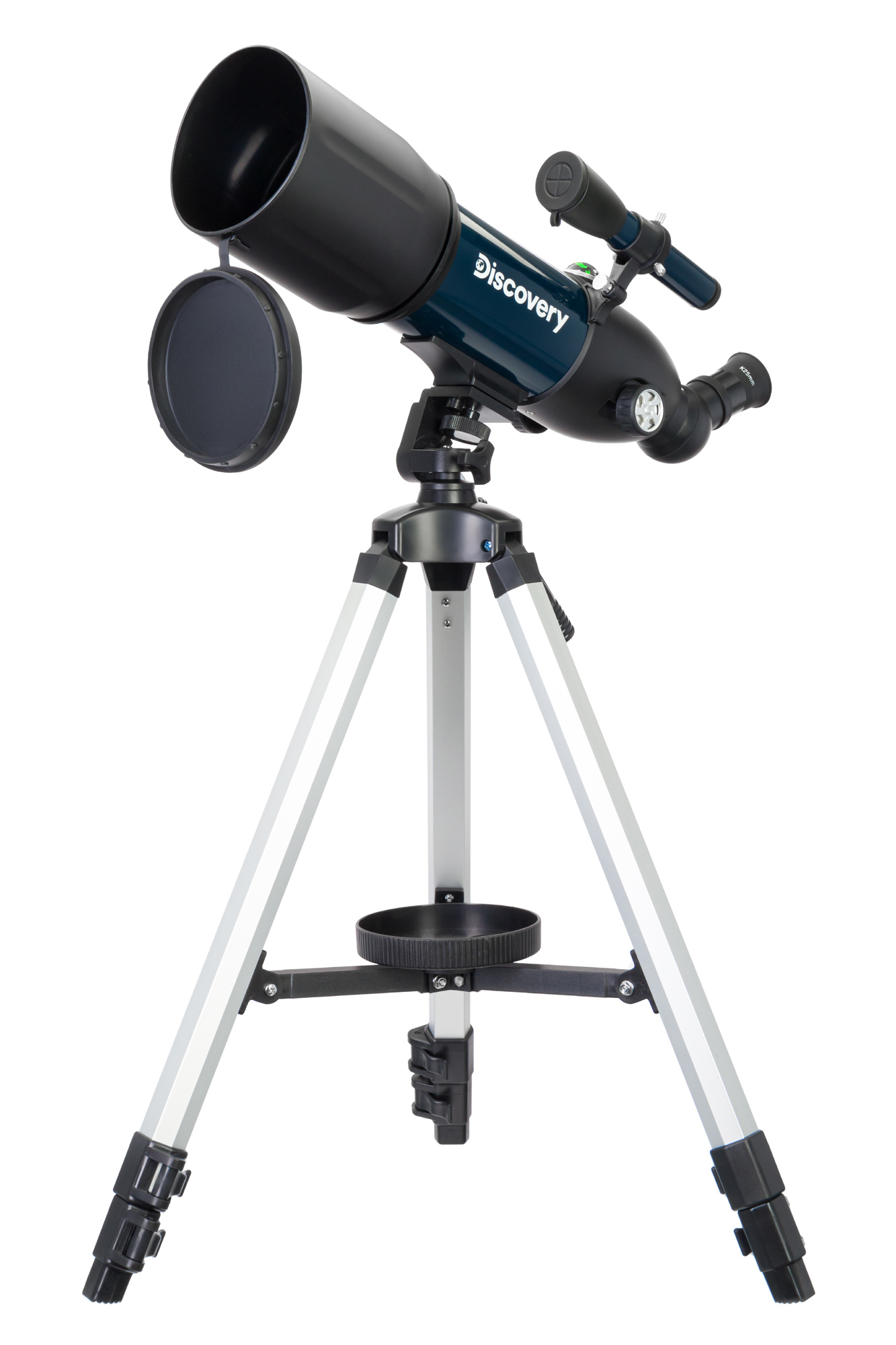Levenhuk Discovery Sky Trip ST80 Telescope with book
Refractor. Aperture: 80mm Focal length: 400mm
| Product ID | 79087 |
| Brand | Discovery |
| Warranty | 10 years |
| EAN | 5905555012995 |
| Package size (LxWxH) | 66x26x14 cm |
| Shipping Weight | 4.185 kg |

Discovery Channel informs, entertains and inspires its audiences around the globe about the world in all its wonder, diversity and amazement. Offering millions of people the chance to discover, and satisfy their curiosity, Discovery offers a compelling mix of stories across genres including science and technology, exploration, adventure, history and in depth behind-the-scenes glimpses at the people, places and organisations that shape and share the world we live in.
We proudly present the Discovery optics series that is produced by Levenhuk and endorsed by Discovery.
Levenhuk Discovery Sky Trip ST80 Telescope with book is everything that an aspiring astronomer is dreaming of. A compact telescope-refractor is perfect for your first experience with outer space, out-of-town trips, and even for entry-level astrophotography. The interesting knowledge book "Space. Non-Empty Emptiness" contains all of the basic theory you need to know about stargazing. The device is great for lunar, planetary, and terrestrial observations. Bright deep sky objects such as nebulae and distant galaxies are easily visible. The best telescope in its series: a maximum of 160x magnification.
The Levenhuk Discovery Sky Trip ST80 is easy to operate as a telescope tube is mounted on a simple alt-azimuthal mount for azimuth and elevation movements. The telescope comes with many optical accessories: a Barlow lens, eyepieces, a finderscope, and a diagonal prism. There is an adapter for a smartphone for taking photos and videos. You can explore the possibilities of your first telescope by adjusting the settings to observe various celestial bodies, record your results, and share them with your friends. A small built-in compass makes it easier to navigate on land.
The benefit of the telescope is a small-size tube. In comparison to other refractors, the optical tube is half as long as many others. In addition, the telescope is simple and quick to set up. This makes it ideal for road trips, weekend trips to the countryside, and out-of-town festivals for astrophotographers. The device and accessories are conveniently stored in a bag, so the device can be transported safely. The height-adjustable secure tripod, made of aluminum and is equipped with an accessory tray, easily adjusts to the height of an observer.
Key features:
- The most powerful refractor in the Levenhuk Discovery Sky Trip series
- Compact optical tube with a built-in compass
- For observing space at night and terrestrial objects during the day
- Easy to use; alt-azimuth mount
- Everything you need for colorful photos: fully coated optics and an adapter for a smartphone
- The set of multiple accessories and the illustrated knowledge book
The kit includes:
- Telescope optical tube
- Alt-azimuth mount
- Aluminum tripod with an accessory tray
- Optical finderscope 5x20
- Eyepiece: K9mm, 1.25"
- Eyepiece: K25mm, 1.25"
- Diagonal prism
- 3x Barlow lens
- Adapter for a smartphone
- Transportation bag
- The "Space. Non-Empty Emptiness" knowledge book
- User manual and warranty card
| Product ID | 79087 |
| Brand | Discovery |
| Warranty | 10 years |
| EAN | 5905555012995 |
| Package size (LxWxH) | 66x26x14 cm |
| Shipping Weight | 4.185 kg |
| Optical design | refractor |
| Optics material | optical glass |
| Optics coating | fully multi-coated |
| Objective lens diameter (aperture), mm | 80 |
| Focal length, mm | 400 |
| Highest practical power, x | 160 |
| Aperture ratio | f/5 |
| Limiting stellar magnitude | 11.62 |
| Eyepieces | K9mm (44x), K25mm (16x) |
| Eyepiece barrel diameter, in | 1.25 |
| Barlow lens | 3x |
| Finderscope | optical, 5х20 |
| Tripod | aluminum |
| Tripod height (adjustable), mm | 560–1200 |
| Accessory tray | ✓ |
| Telescope control | manual |
| Mount | alt-azimuth |
| Additional | built-in liquid compass (located on the optical tube) |
| Optical tube material | aluminum |
| User level | beginners |
| Assembly and installation difficulty level | extremely simple |
| Observed object | planets of the Solar System, terrestrial objects |
| Extended kit | ✓ |
| Pouch/case/bag in set | bag |
Convenient diagrams that describe how to install additional accessories on refractors and catadioptric telescopes
Find out how to assemble a telescope on an example of the Levenhuk Skyline 90x900 EQ telescope
This short guide will help you avoid typical mistakes and learn more about telescope and mounting types
The basics of astronomical observations for beginners
In this article we have gathered answers to some of the most frequently asked questions about telescopes
How telescopes work?
You can actually perform observations from your balcony!
All about telescope sizes, types, magnification, and mounts
Learn how to set up and use the telescope properly
Astronomy in light-polluted skies. Find out what you can observe in the city
Read an interesting comprehensive article on telescopes for little astronomers
Celestial objects you can observe with telescopes of different apertures
Colored and vivid images of galaxies, planets and star clusters entrance everyone who is fascinated by boundless space
Find an interesting review on the history of the changes to a refracting telescope
To make the process of choosing a telescope easier, we will tell you about the characteristics of the most popular types of telescopes today
Learn everything you need to know about refractor telescopes to make the right choice
Having thought of you and your loved ones, Levenhuk and Discovery have rounded up several desirable gifts for this Christmas
Playlist with reviews of telescopes, binoculars, monoculars, microscopes, planetaria, meteorological stations and other Levenhuk Discovery optical equipment
Eager to learn and explore everything around you? If so, consider treating yourself with new optical instruments to get one step closer to the myriad of unexplored wonders of nature that are all around us every day.



